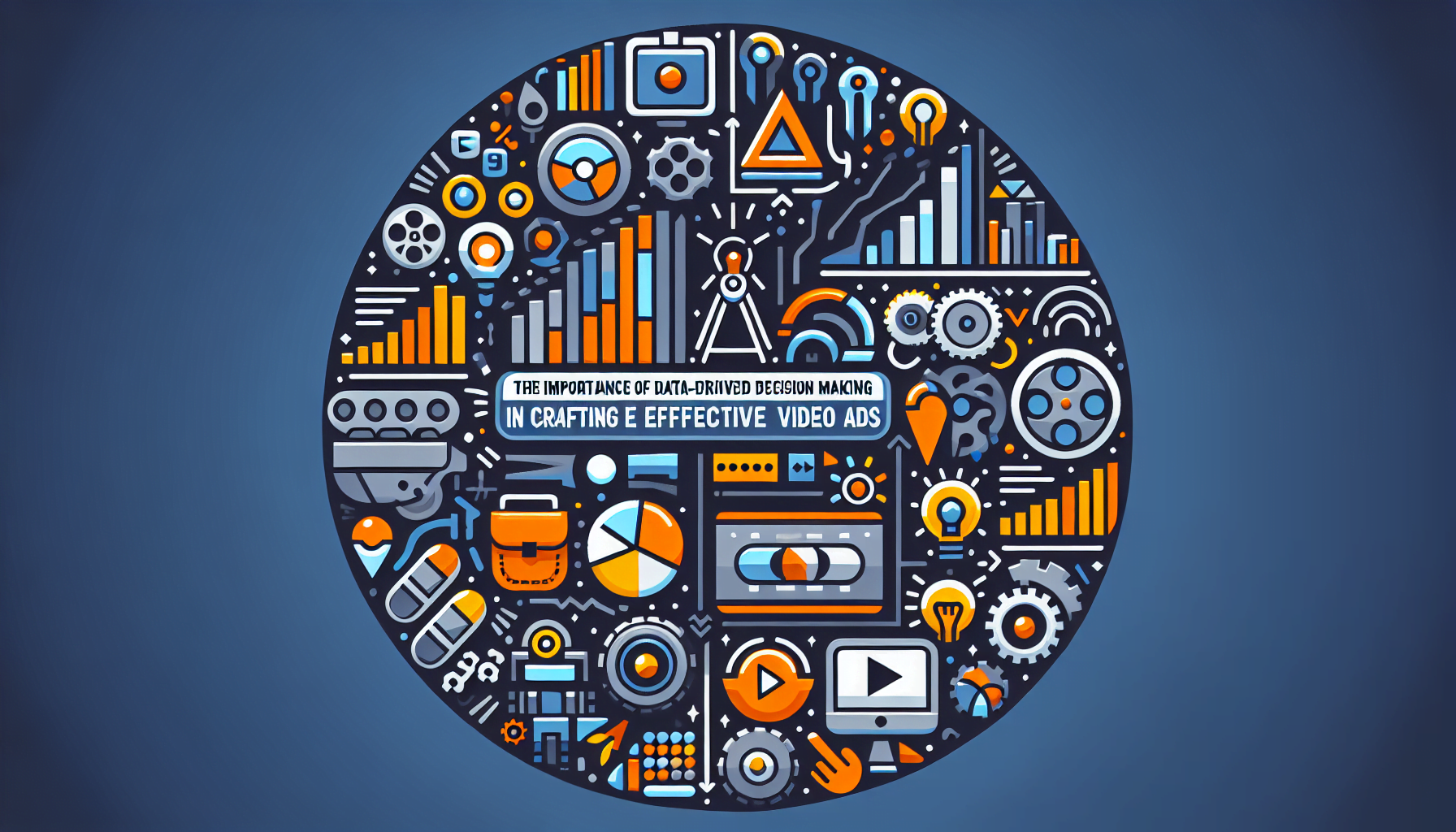Elevate Your Conversion Tracking with AI’s Power
Introduction
In today’s ever-changing business landscape, conversion tracking has become an integral part of measuring success. As technology continues to advance, harnessing the potential of Artificial Intelligence (AI) has emerged as a game-changer for enhanced tracking. By leveraging AI algorithms and techniques, businesses can gain valuable insights and optimize their conversion strategies like never before.
Understanding Conversion Tracking
Conversion tracking refers to the process of monitoring and analyzing user actions to determine whether desired goals, such as making a purchase or signing up for a newsletter, are being achieved. It provides businesses with vital information on customer behavior, enabling them to make data-driven decisions and improve overall performance. Without effective tracking, businesses are left in the dark, relying on guesswork rather than concrete data to optimize their marketing efforts.
The Role of AI in Conversion Tracking
AI revolutionizes the tracking process by automating and streamlining various aspects. Machine learning algorithms, a subset of AI, can analyze vast amounts of data to accurately track and predict user behavior. This empowers businesses to understand customer preferences, personalize experiences, and optimize their conversion strategies for better results. The advantages of incorporating AI into conversion tracking are numerous, ranging from improved accuracy to increased efficiency and scalability.
AI-Powered Conversion Tracking Techniques
Machine learning algorithms play a pivotal role in accurate conversion tracking. By analyzing historical data, these algorithms can identify patterns, correlations, and trends that humans may overlook. Predictive analytics, another AI-powered technique, leverages machine learning algorithms to forecast future outcomes based on historical data. This enables businesses to make proactive decisions and optimize their conversion strategies for maximum success. Additionally, natural language processing allows businesses to gain deeper insights into customer sentiments, preferences, and intent by analyzing unstructured data such as customer reviews and social media interactions.
Enhancing Data Collection with AI
AI enables automated data collection and analysis, saving businesses valuable time and effort. By employing AI-driven tools, businesses can gather and process vast amounts of data in real-time. This real-time tracking empowers businesses to respond quickly to changing customer behavior, make data-driven decisions, and adapt their strategies accordingly. Moreover, AI-driven data integration brings together data from multiple sources, providing a comprehensive view of the customer journey and facilitating more accurate tracking and analysis.
Personalization and Customer Segmentation
One of the most significant advantages of AI in conversion tracking is its ability to understand customer behavior at a granular level. By leveraging AI, businesses can gain insights into individual preferences, needs, and purchase patterns. This enables them to deliver personalized experiences that resonate with customers on a deeper level. AI-powered segmentation strategies further enhance this personalization by categorizing customers based on their behaviors, demographics, and interests. By tailoring marketing efforts to specific segments, businesses can increase engagement, conversions, and customer satisfaction.
Optimizing Conversion Funnels
AI-driven analysis of conversion funnels allows businesses to identify bottlenecks and areas for improvement. By understanding where users drop off or face obstacles in the conversion process, businesses can optimize their funnels to reduce friction and increase conversions. AI-powered techniques, such as automated optimization, enable continuous improvement by automatically adjusting elements such as landing pages, CTAs, and messaging based on real-time data. This iterative optimization process ensures that businesses are constantly refining their conversion strategies for maximum effectiveness.
Conversion Attribution with AI
Attributing conversions to the right touchpoints is crucial for accurate insights and optimization. AI offers advanced attribution models that go beyond simplistic first-touch or last-touch attribution. By analyzing multiple touchpoints throughout the customer journey, AI can determine the contribution of each interaction to the final conversion. This balanced attribution provides businesses with a holistic view of the customer journey, allowing them to allocate resources more effectively and optimize their marketing efforts for better results.
Behavioral Analytics and User Insights
AI-powered analysis of user behavior patterns unlocks valuable insights for businesses. By analyzing vast amounts of data, AI algorithms can predict user actions and preferences, enabling businesses to anticipate customer needs and deliver tailored experiences. These insights can be leveraged to create targeted marketing campaigns that resonate with customers, resulting in higher engagement and conversions. By understanding the “why” behind customer actions, businesses can craft strategies that align with customer desires and motivations.
A/B Testing and Conversion Optimization
AI-driven A/B testing takes experimentation to new heights. By leveraging AI algorithms, businesses can test multiple variations of elements such as headlines, visuals, or CTAs simultaneously. AI analyzes the results in real-time, quickly identifying the winning variation and allowing businesses to optimize their conversion rates. Additionally, AI can optimize landing pages and CTAs by dynamically adjusting them based on user behavior, ensuring that businesses provide the most compelling and effective elements to drive conversions.
Improving Ad Performance with AI
AI-powered ad targeting and optimization maximize ad performance. By analyzing vast amounts of data, AI algorithms can identify patterns and trends to target the right audience with precision. Smart bidding strategies, driven by AI, enable businesses to bid on ad placements based on the likelihood of conversions, ensuring efficient allocation of resources. Real-time ad performance tracking with AI provides businesses with instant insights into the effectiveness of their ad campaigns, enabling them to make data-driven decisions and continuously improve their performance.
Fraud Detection and Prevention
AI algorithms play a crucial role in detecting and preventing fraud in conversion tracking. By analyzing patterns and anomalies in user behavior, AI can identify fraudulent activities such as click fraud or bot traffic. This ensures data integrity and trustworthy results, safeguarding businesses from fraudulent practices that can skew their tracking and analytics.
Cross-Channel Tracking and Integration
In today’s multi-channel marketing landscape, businesses need to track customer interactions across various touchpoints. AI enables seamless tracking across multiple channels, allowing businesses to gain a comprehensive understanding of the customer journey. By integrating AI-powered tracking platforms, businesses can unify data from different channels, creating a cohesive view of customer behavior and enabling more accurate tracking, analysis, and optimization.
Ethical Considerations in AI Conversion Tracking
While AI offers tremendous benefits, ethical considerations must be addressed. Ensuring data privacy and protection is paramount, with businesses taking measures to secure customer information and adhere to data regulations. Transparency and user consent are essential, providing customers with clear information about tracking practices and obtaining their permission. Additionally, businesses must be mindful of bias and fairness concerns that may arise from AI algorithms, ensuring that tracking and optimization processes are conducted in an unbiased and equitable manner.
Challenges and Limitations of AI Conversion Tracking
While AI brings immense potential, challenges and limitations must be acknowledged. Overcoming data quality and accuracy issues is crucial for reliable tracking and analysis. Ensuring that AI algorithms receive accurate and representative data is essential to avoid skewed results. Managing the complexity of AI algorithms requires expertise and resources. Businesses need to invest in skilled professionals and robust infrastructure to leverage AI effectively. Adapting to changing consumer behaviors and preferences is also a challenge, as businesses must continuously update their strategies to stay relevant and align with evolving customer expectations.
Best Practices for Implementing AI in Conversion Tracking
Implementing AI in conversion tracking requires a strategic approach. Setting clear goals and objectives is the foundation for success. Businesses must define what they want to achieve through AI-powered tracking and optimization. Choosing the right AI tools and platforms is crucial, considering factors such as scalability, compatibility, and ease of integration. Continuous monitoring and optimization ensure that businesses derive maximum value from their AI implementations. By regularly reviewing and refining strategies, businesses can stay ahead of the curve and continuously improve their conversion rates.
Success Stories and Case Studies
Real-world examples of AI-driven conversion tracking abound. Numerous businesses have successfully leveraged AI algorithms and techniques to enhance their tracking, optimize their marketing efforts, and drive conversions. These success stories demonstrate the effectiveness of AI and provide inspiration for other businesses looking to unlock the full potential of conversion tracking.
Future Trends and Innovations
The field of AI in conversion tracking continues to evolve rapidly. Anticipated advancements and breakthroughs promise even more sophisticated tracking and optimization capabilities. Innovations such as deep learning and reinforcement learning hold the potential to revolutionize conversion tracking by enabling AI algorithms to learn and adapt in real-time. As technology progresses, businesses can expect increased automation, improved personalization, and more accurate insights, propelling conversion tracking to new heights.
Conclusion
In conclusion, AI has become a powerful tool in the realm of conversion tracking. By leveraging AI algorithms and techniques, businesses can unlock valuable insights, optimize their marketing efforts, and drive conversions like never before. From personalization and behavioral analytics to fraud detection and cross-channel integration, AI empowers businesses to make data-driven decisions and achieve better results. Embracing AI in conversion tracking is essential for businesses aiming to stay competitive in today’s dynamic digital landscape. By harnessing the power of AI, businesses can maximize their conversions and unlock the full potential of their marketing efforts.





